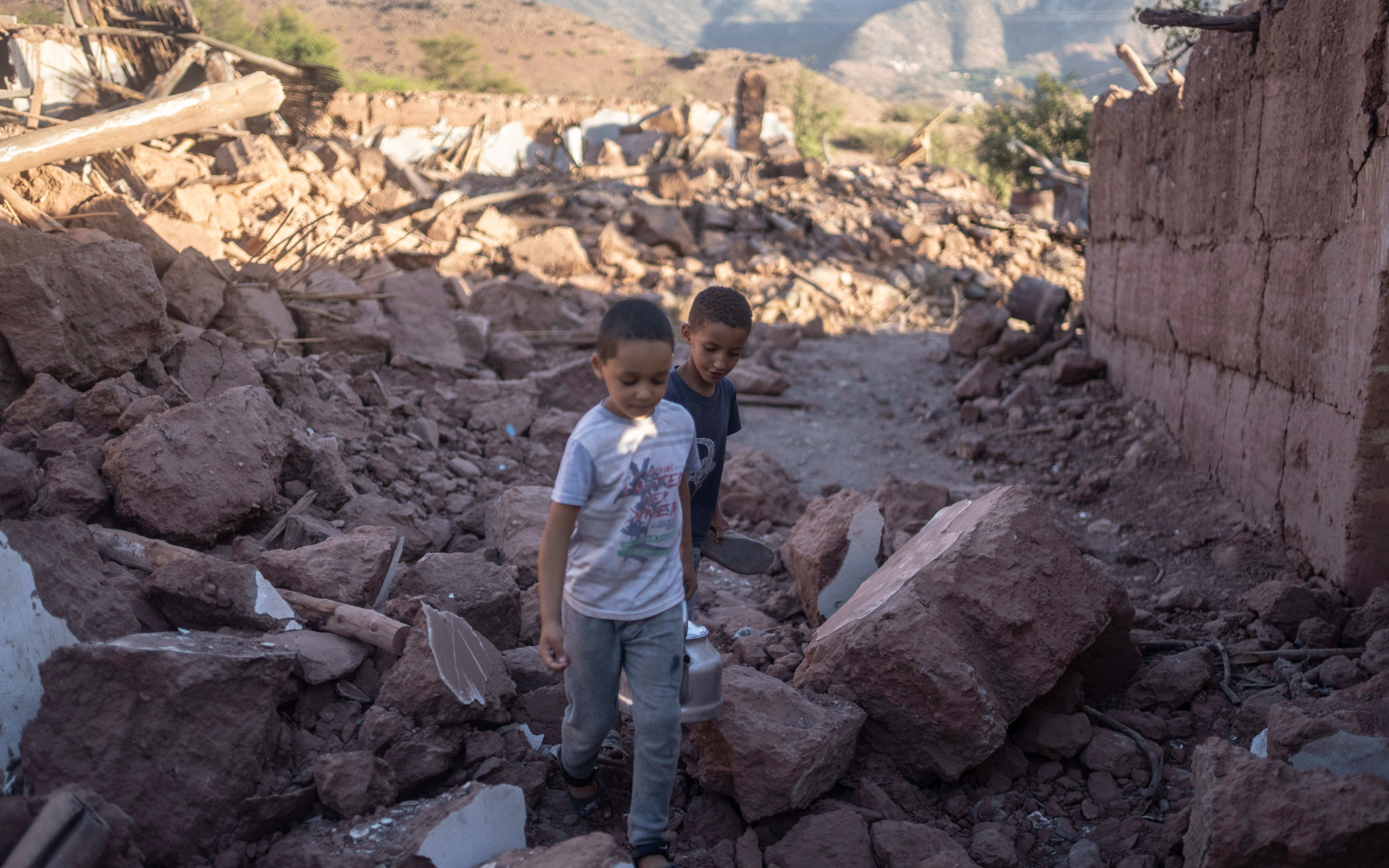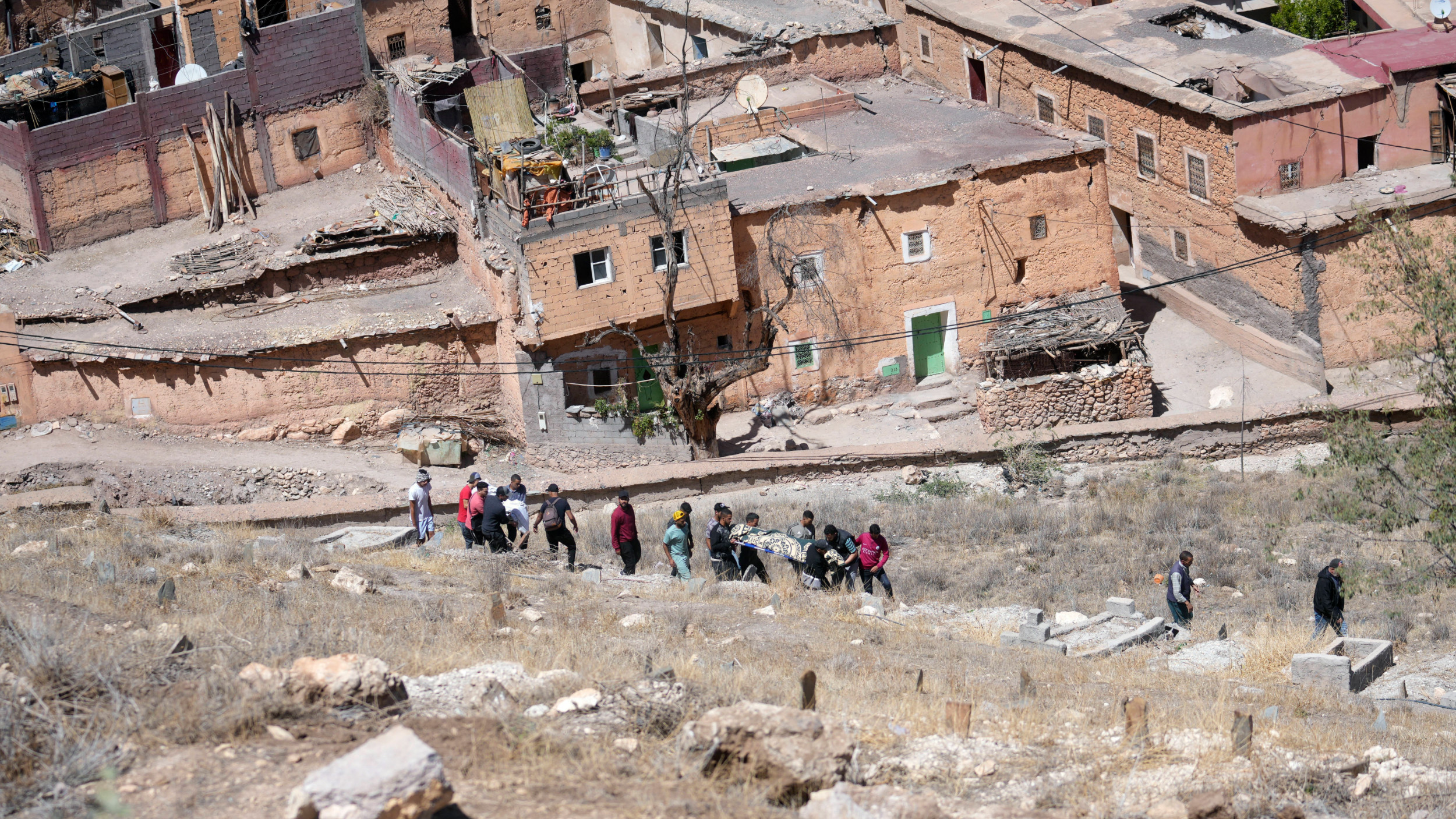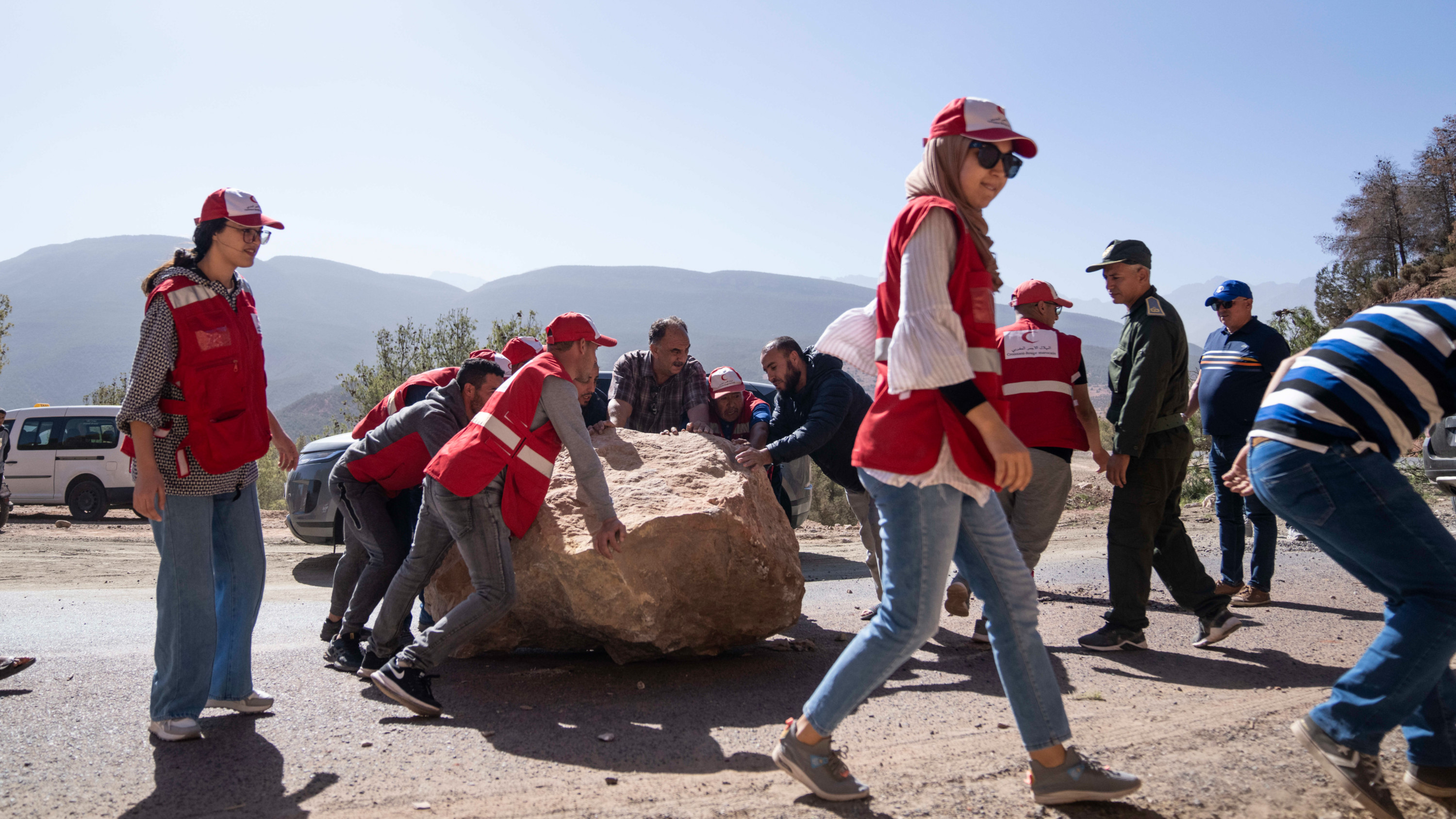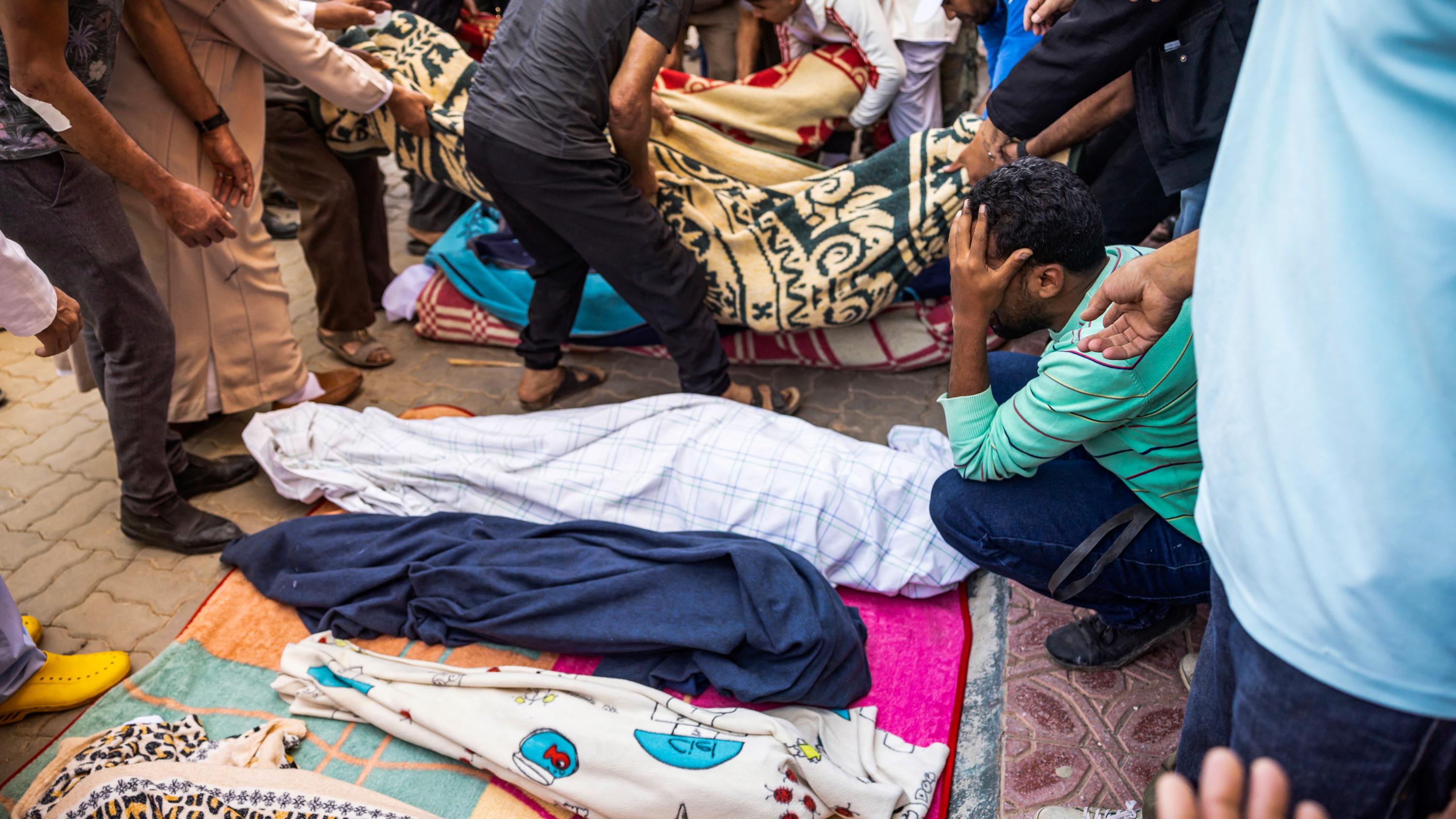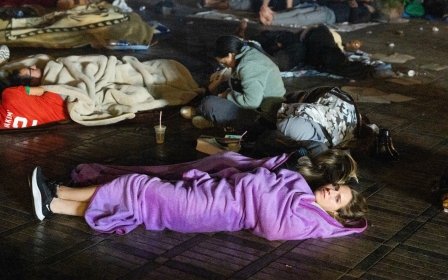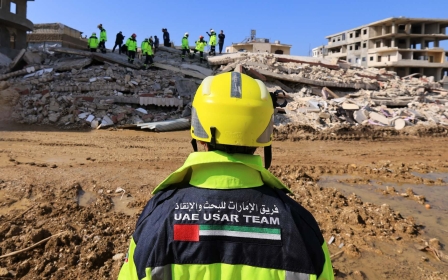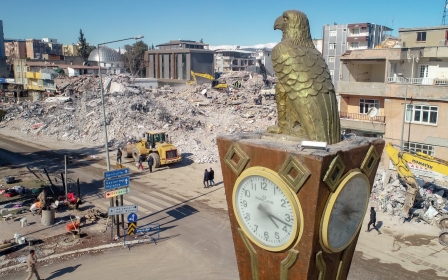Morocco earthquake live: Offers of aid flow in, but not without controversy
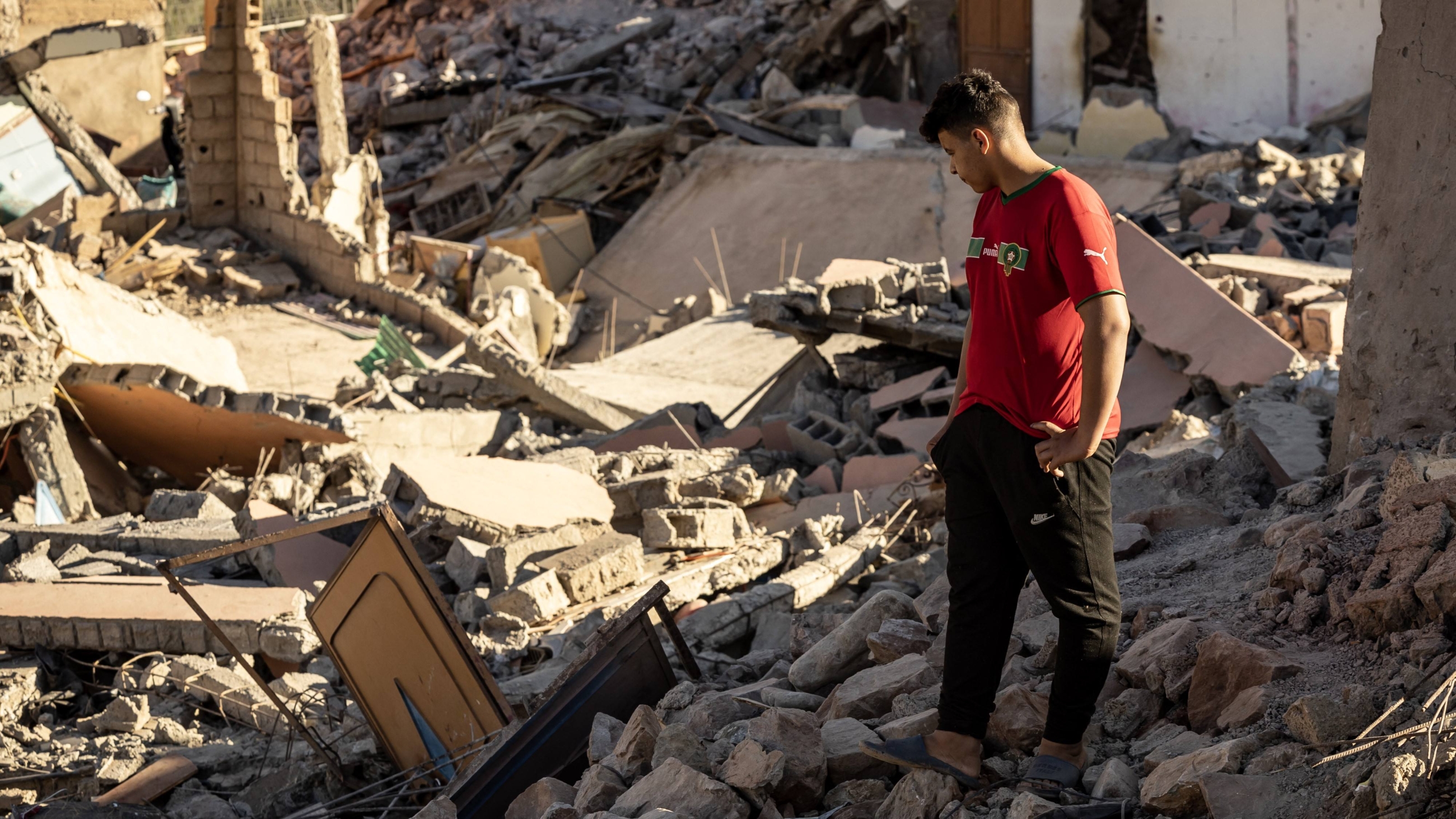
Live Updates
Good morning Middle East Eye readers,
As Moroccans spent the first day following the devastating Friday earthquake absorbing the initial shock, attention has now been turned to the worst-hit villages in the High Atlas mountains.
Rescue workers are in a race against time to reach dozens of remote villages scattered around Marrakech in the epicentre of the quake.
Due to the rugged terrain and road blockages caused by falling rocks, many small towns have been cut off.
Some villages have been completely flattened, with the extent of losses not yet fully known.
The death toll reached 2,012 overnight, with the number likely to continue to increase as emergency responders face an uphill battle to find survivors in the coming hours.
Keep an eye on MEE's live blog for updates throughout the day, and follow us on Facebook, X, Instagram and Youtube.
The death toll from the Moroccan earthquake has risen to 2,012 people, Moroccan state TV said early on Sunday, citing a statement from the interior ministry.
The number of injured rose to 2,059, including 1,404 people who are in a critical condition, it added.
We will shortly be ending our liveblog of the devastating Moroccan earthquake for the evening.
Join us in the morning for the latest developments as Moroccan emergency services continue their search for survivors and the country begins to come to terms with its deadliest earthquake in decades.
The death toll from the Moroccan earthquake rose to 1,305 people late on Saturday, a statement from the interior ministry said.
The number of injured rose to 1,832, which includes 1,220 people who are in a critical condition, the ministry added.
Morocco's royal court has declared three days of national mourning following the deadly 6.8-magnitude earthquake.
"Three days of national mourning have been decided, with flags to fly at half-mast on all public buildings," said a statement published on Saturday evening by the official MAP news agency after King Mohamed VI chaired a meeting to discuss the disaster.
Gambia and Congo's African Cup of Nations qualifier in Marrakech will go ahead as scheduled on Sunday despite the powerful earthquake that struck the city on Friday night and which has so far killed more than 1,000 people and injured hundreds more.
However, Saturday's match between Morocco and Liberia in Agadir, 260km away from the quake's epicentre, has been postponed.
The Gambia and Congo squads spent the night sleeping beside their hotel pools after the 6.8-magnitude quake struck.
Both coaches said their players were traumatised by the event but had been told they must go ahead with their match.
Sunday's clash, which decides who qualifies along with Group G winners Mali, is being played in Marrakech because Gambia does not have a suitable stadium to host international matches.
"We have been told our match on Sunday must go ahead. It's quite strange that the Morocco game is off but ours is not," Gambia coach Tom Saintfiet told Reuters.
"The hotel is damaged but we can hopefully get new rooms on the ground. But we think it is best this game is postponed because the mood among the players is understandably sombre and everyone is a little scared."
Congo coach Paul Put said his players were unharmed.
"We are OK but still in shock. Mentally, it's difficult to keep up the concentration. We had to sleep outside, near the swimming pool. It was very scary and even now a complicated situation for the players."
Morocco have already reached the finals along with South Africa from Group K and the match with Liberia is their last qualifier, with the outcome of academic interest.
Air France said on Saturday that all its flights to and from Moroccan airports - Marrakech-Menara, Casablanca Mohammed-V and Rabat-Sale - were operating normally.
"Commercial measures are in place, allowing customers with a booking for travel to or from Morocco in the next few days to modify or postpone their trip free of charge," the airline said.
In conjunction with French and Moroccan authorities, Air France said in a statement that it would study the need to add additional flights or use larger-capacity aircraft on its routes between France and Morocco in the coming days.
The Eiffel Tower's lights will go dark at 11pm local time (9pm GMT) on Saturday in honour of the victims of Morocco's earthquake, AFP reported, citing Paris City Hall.
Morocco's Interior Ministry said earlier that 1,037 people had been killed and another 672 injured by the quake, recorded by the US Geological Survey at a magnitude of 6.8 with an epicentre some 72km southwest of Marrakech.
Moroccan football star Achraf Hakimi posted a picture of himself giving blood as hospitals said they were running out of blood bag reserves and urged people to donate.
"This time, the priority is to give blood to people in critical situations. Donating blood is everyone's responsibility to save as many lives as possible. Your help is needed," Hakimi captioned his post on X, formally known as Twitter.
Earlier, he said it was "time to help each other" in this "difficult moment".
Hakimi, who plays for French side Paris Saint Germain, was set to feature with the Moroccan national team in an African Cup of Nations qualifying match against Liberia later tonight.
It was unclear if the match, scheduled to be played at Adrar Stadium in Agadir city, will go ahead as planned.
Residents of isolated areas outside Marrakech have begun to bury their dead and count their losses as rescue workers struggle to reach remote villages in the epicentre of the earthquake.
In the Moulay Brahim village, some 50km south of Marrakech, the first moments of the powerful earthquake felt like an apocalypse, one resident said.
"We could hear rocks falling and people screaming. We didn't know what was happening. We thought it was the day of judgement," the resident, who did not give a name, told AFP.
"I began running and evacuated my four children to the nearby land. I went back to evacuate my wife and then went to my parent's house to evacuate them along with my aunt. When I got there, I found them covered with dust. Thank God they did not die," he added.
The mountainous village is located in the al-Haouz province, the epicentre of the quake and the hardest-hit area.
Of the initial 820 death toll, nearly half were recorded in Haouz alone.
However, the extent of the casualties is not fully known yet, as the rugged nature of the affected areas makes them harder to reach.
Nasser Jabour, director of the country's National Institute of Geophysics, told Al Jazeera that rockslides after the earthquake in some areas have blocked roads to villages and slowed down rescue operations.
The slower it is to reach affected areas the harder it becomes to find people trapped under rubble alive.
Experts say after the first critical 72 hours, chances of finding survivors dwindle.
Meanwhile, residents of Moulay Brahim began the burial of earthquake victims as the search for other survivors continued.
Men were seen lining up bodies before performing burial prayers for them, as survivors embraced each other and mourned their loved ones.
At least 40 people from the village have died so far, according to initial reports.
"May God have mercy on the deceased and grant us patience," said a resident inspecting the damage in one house in the village.
The death toll has risen to 1,037, according to the state TV.
At least 1,204 have been wounded, including 721 suffering serious injuries, officials have said.
Algeria has opened its airspace to Moroccan aviation carrying earthquake aid or transporting wounded people, the Algerian presidency has said.
In a statement, the presidency expressed condolences to the Moroccan people and offered to provide assistance should it be requested by Rabat.
Morocco and Algeria have had frosty relations for several decades, with longstanding disagreements over disputed Western Sahara territory, and more recent tension over revelations that Morocco may have spied on the phones of Algerian officials.
The border between the neighbouring countries has been closed since 1994 and diplomatic contact has been severed since Algiers cut ties with Rabat in 2021, the same year it also closed its airspace to Moroccan aviation.
Morocco's King Mohammed VI has ordered the armed forces to mobilise air, land, specialised search and rescue teams and a surgical field hospital to help with the rescue effort.
Despite offers of help, Rabat has yet to formally ask for international assistance, a step required before outside rescue crews can be deployed to the disaster area.
Rescue operations in Marrakech and surrounding quake-hit areas have been ongoing since the early hours of Saturday.
Emergency workers are digging through the rubble of collapsed buildings looking for survivors, as the death toll mounts to over 800, making it the deadliest earthquake in Morocco in decades.
World leaders continue offering support and condolence to Morocco after a deadly earthquake struck the North African kingdom.
Chinese President Xi Jinping expressed his "deep grief for the victims and sincere condolences to the families" on behalf of the Chinese government and people, according to a statement given to state broadcaster CCTV.
US President Joe Biden said he was "deeply saddened" by the earthquake. In a statement, Biden said his "thoughts and prayers are with all those impacted by this terrible hardship".
Biden also said the United States was "ready to provide any necessary assistance".
Meanwhile, Ukrainian President Volodymyr Zelensky said his deepest condolences were with the Moroccan people and "the lives lost in the horrible earthquake in the Marrakech region".
"I wish those injured a fast recovery. Ukraine stands in solidarity with Morocco during this tragic time."


